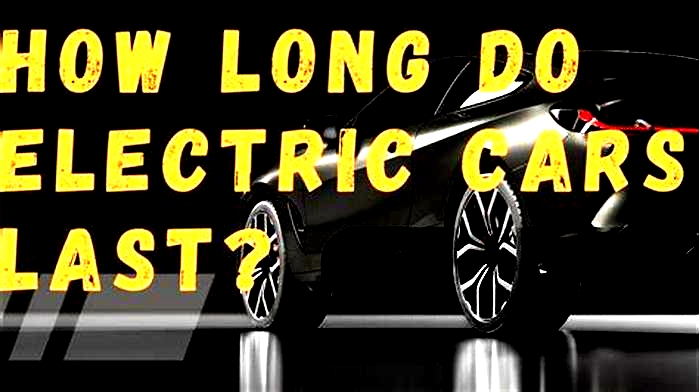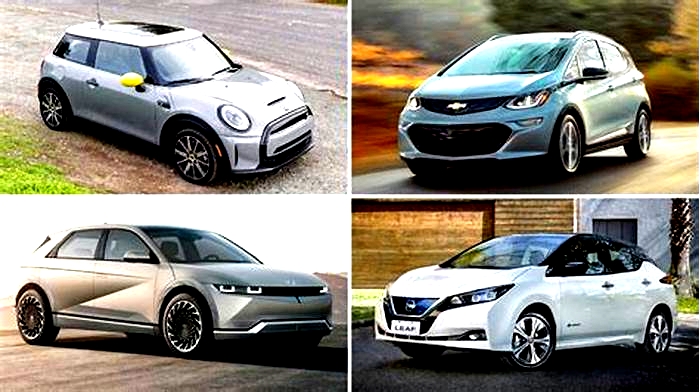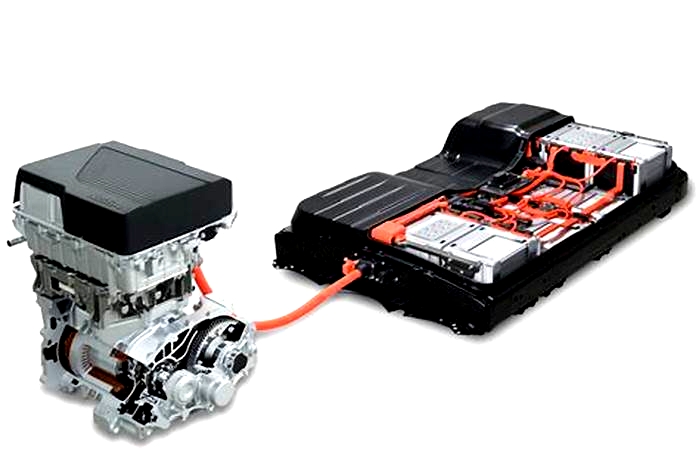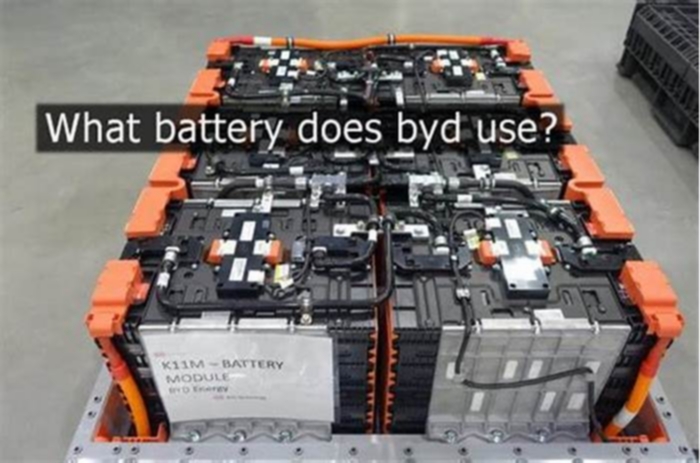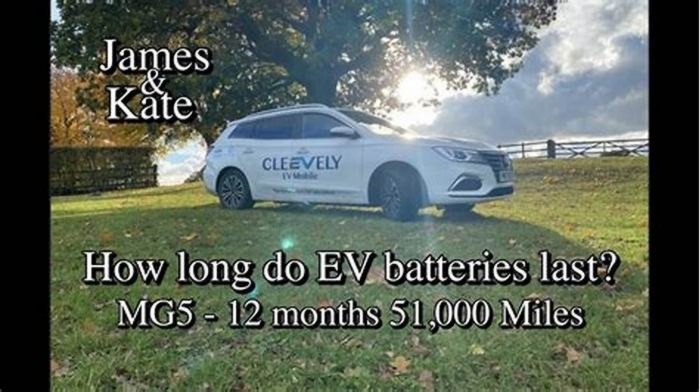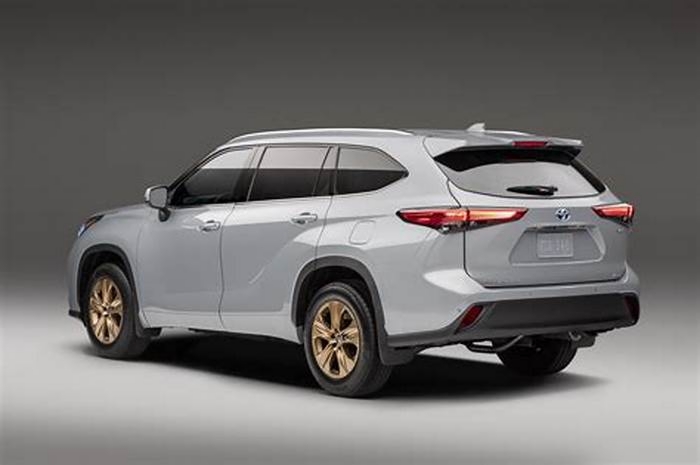How Long Will electric cars last
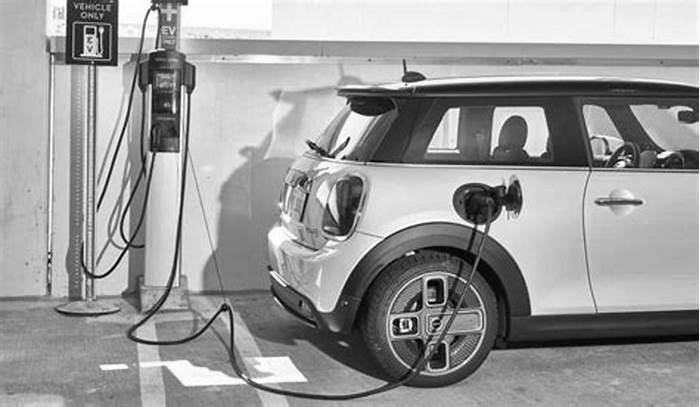
How Long Do Electric Cars Last?
One of the most common questions that people have when they start thinking about buying an Electric car is just how long they last. While petrol cars can last between 150,000 to 300,000 miles, the question remains: how long can we expect an electric car to last?
In this article, we will delve into the factors that affect the lifespan of an electric car, including battery degradation, regular maintenance, and manufacturer warranties. When you have finished reading youll have a better understanding of how long an electric car might last and some tips to make sure that it lasts as long as possible.
How long do electric cars typically last?
With electric cars being so new, there is less data and analysis on the life expectancy of an EV compared to traditional cars. However, based on the current battery lifespan estimates available, electric car components are estimated to last between 15 and 20 years. EVs are well made and designed to last longer, but the batteries have a life expectancy of 15 to 20 years. After this period, while their charging capacity declines, they can still function effectively, especially for owners who have the ability to charge often. This reduced capacity might not be a significant issue for daily short to medium-distance commutes. As battery technology advances, the longevity and efficiency of EVs are expected to improve further, ensuring they remain a viable option for longer, even beyond the initial two decades of use.
How long do electric car batteries last?
Modern EV batteries are designed with advanced technology that significantly enhances their durability. Under normal driving conditions, these batteries now have a life expectancy of 15 to 20 years within the vehicle. This marks a substantial improvement over early predictions and reflects the rapid progress in battery technology and design.
The future of EV batteries looks even more promising, with significant research and development efforts focused on pushing the boundaries of current technology. A key area of advancement is the development of solid-state batteries, which promise to revolutionise the industry by offering several advantages over traditional lithium-ion batteries. These include:
- Longer LifespanSolid-state batteries are expected to last longer than lithium-ion batteries that EVs use now, further extending the usable life of electric cars.
- Double the Range One of the most exciting prospects of solid-state technology is its potential to double the range of EVs compared to current models. This would significantly reduce range anxiety and make electric cars suitable for virtually all types of journeys.
- Safety ImprovementsSolid-state batteries are believed to be safer for EVs, with a lower risk of catching fire or exploding under extreme conditions due to their solid electrolytes.
What causes an EV battery to degrade?
EV batteries will degrade over time due to several factors:
- The number of charge cycles Every time an EV battery is charged and discharged, it loses a small amount of its capacity. The more you use it the more it will degrade over time, so its important to avoid overcharging your EV when you dont need to, try to stick to smart chargers and not constantly use portable EV chargers to continuously trickle charge your EV.
- TemperatureHigh temperatures can make a battery degrade more, while low temperatures can temporarily reduce the batterys capacity, so you need it just right (said Goldilocks). EV batteries perform best at moderate temperatures, you might find that your EV comes with a battery thermal management system to regulate the temperature of the battery.
- Age of the batteryAs the battery gets older its ability to hold a charge will gradually decrease.
- UnderuseIf an EV is left parked and not charged the battery will gradually lose charge down to zero, frequently charging a battery from zero will have a negative impact on how long it lasts.
- Charging speed: Fast charging with a large burst of power can generate heat and cause the battery to degrade faster. Slow charging is less stressful on the battery so trickle charging may help you maintain the batterys lifespan
What other factors can affect the lifespan of an electric car?
There are plenty of other factors besides the battery that can affect the lifespan of an electric car. Here are a few that we can think of:
Electric motorThe electric motor is a key component of an electric car, and its lifespan can also affect the overall lifespan of the vehicle. The motor is simpler than those found in petrol engine cars, but it still requires regular maintenance to make sure it lasts longer.
Tyre wearDid you know that the tyres on an electric car can wear out faster than those on a petrol car due to the weight distribution of the battery? Keep on top of tyre maintenance!
Brake padsElectric cars now use something called regenerative braking to slow down the vehicle, which should in theory reduce the wear and tear on the brake pads. However, the brake pads will still need to be looked after and serviced in order to sustain the overall lifespan of the vehicle.Regular servicing Like any car, you should look to service your electric car regularly. Regular servicing helps to keep the EV running smoothly and can help technicians spot any potential future issues early on, then you can prevent them from becoming more serious and causing further damage to the vehicle.
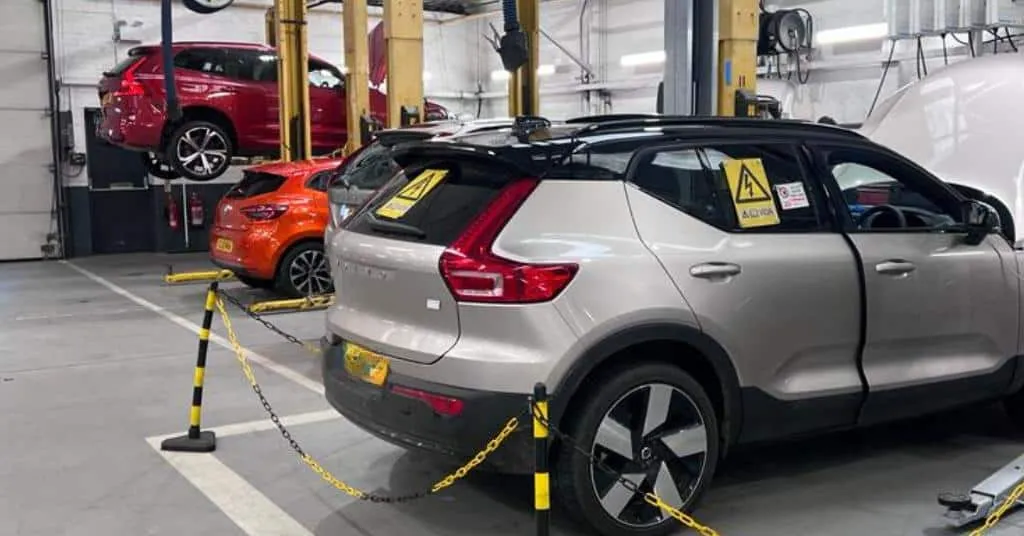
Can you swap out an EV battery?
It is certainly possible to swap out an electric vehicle battery, but its not always easy or cheap! It depends entirely on the make and model of the EV.Nio has developed a battery swapping system for some of their models, where the battery can be swapped out quickly at a Nio battery swap station. However, for most other EV models, swapping out the battery is challenging and time-consuming.
Also, its worth noting that battery technology and voltage can vary between EV models, and even between different years of the same model. So swapping out a battery with a different specification can potentially cause damage to the vehicle! If you do swap out your EV battery you can expect your EV battery to be recycled in accordance with UK law.
Does the way you drive impact how long an electric car lasts?
The way you drive an electric car can definitely impact how long the vehicle lasts. There are 3 key ways in which your driving style can directly impact the lifespan of your EV:
- Acceleration: Hard acceleration can cause the battery to drain faster and can also put a fair bit of stress on the electric motor. Gradual acceleration is a better idea, its gentler on the battery
- Braking: Frequently braking aggressively can cause the brake pads to wear and also waste a lot of energy that could otherwise be used to recharge the battery. Think about the traffic flow ahead of you and brake more gradually
- Driving at fast speeds: The faster you drive the more the cars aerodynamic drag increases, meaning the battery has to work harder and drains more quickly
How to store an EV for a long time?
If you need to store your EV for a while and dont do so correctly, it can impact the overall lifespan of the car. Its important to take proper precautions to ensure the battery and other components remain in good condition. Here are some additional tips on how to store your electric car correctly:
Charge the Battery: Ensure that the battery is fully charged before storing the car. This will help prevent the battery from losing its charge over time.
Disconnect the 12-Volt Battery: In addition to the main battery pack, electric cars also have a 12-volt auxiliary battery that powers the vehicles accessories, such as lights and an audio system. Its recommended to disconnect the 12-volt battery to prevent it from draining and running flat. If our 12-Volt battery does run out completely you can jump-start an electric vehicle in the same way that you would a petrol car.
Store in a Cool, Dry Place: Just like a fine wine, you should store your electric car in a cool, dry place, such as a garage. This will help to protect the car from nasty weather and humidity.
Inflate the tyres: Get them to the recommended pressure to prevent flat spots from developing. If possible, move the car occasionally if you can, to prevent the tires from becoming flat on one side.Cover the Car: Use a car cover to protect it from dust and bird poop!
What should I look for when buying an electric car to ensure a long lifespan?
Check the electric vehicles MOT history, you can do this online at the Gov website. Any repeat red flags that might indicate the EV has longer-term issues?Its also worth looking for an electric car that has an effective battery cooling system, as this can help to extend the lifespan of the battery. High temperatures can cause the battery to degrade more quickly, so a cooling system can help to regulate the temperature and protect the battery.
Its really important to carefully study the manufacturers warranty when purchasing an EV. Look for an electric car with a manufacturers warranty that covers the battery and other components.
How to compare EV warranties
When comparing electric vehicle (EV) warranties, here are a few things you should study to make sure you are comfortable with the level of cover:
- The basics how much overall coverage is there? Check the duration and mileage limits of the basic warranty, also known as the bumper-to-bumper warranty. This coverage typically includes most components of the vehicle, excluding wear-and-tear items like brakes and tires. Look for a warranty with a longer duration and higher mileage limit to maximise coverage.
- Battery cover We know that the battery is one of the most expensive and crucial components of an EV, pay special attention to the battery warranty. Look for warranties that offer a longer duration and higher mileage limit.
- TransferabilityWarranties should be transferable to new owners if you sell them, which can increase the resale value of your EV. Check whether the warranty you are considering is transferable and if any fees or conditions apply.
- Exclusions and limitationsCheck the warranty terms to understand any exclusions or limitations, as they may impact the coverage and support you receive.
MORE> How Long Does a Tesla Battery Last?
The final word on how long electric cars last
With proper care and maintenance, and a bit of due diligence during the purchase process, electric cars can last for at least 15 to 20 years and likely beyond.How long an electric car lasts will depend on several factors, including the batterys size, cooling system, and how you approach charging the vehicle ensure you have chosen the best EV charger to suit your vehicle and be sure to regularly maintain that charger. Driving style also plays a part, try to drive with gentle acceleration and braking, keep your speeds down and this may help to extend the lifespan of your electric vehicle.
Ready to dive even deeper...
John Ellmore
John is the Editor and Spokesperson for Electric Car Guide.
With over 20 years of writing experience, he has written for titles such as City AM, FE News and NerdWallet.com, covering various automotive and personal finance topics.
Johns market commentary has been covered by the likes of The Express, The Independent, Yahoo Finance and The Evening Standard.
EV Lifespan: Do They Last as Long as Gasoline Cars?
Just as gasoline and diesel engines were once new technology and poo-pooed by the horse-driven public, modern battery electric vehicles (EV) are facing the same criticisms. Will electric vehicles be on the road as long as gasoline cars and diesel vehicles? Absolutely, and automakers are already delivering.
Myth Busted: Neither EVs nor Gasoline Cars Are Infallible
Since the first automobile went from production to daily driver to a cube at the junkyard, car and truck lifespan has been increasing. Notwithstanding a few outliers, such as Irv Gordons 3.2-million-mile 1966 Volvo P1800S and Matt Farahs million-mile 1996 Lexus LS400, the increasing life of the typical car is encouraging. In 1977, the average American car was just 5.5 years old. By 1995, it was 8.4 years, and in 2020, the average reached 11.9 years.
That says a lot about todays typical driver expectations and the technical advances implemented to meet them: People want cars that last. EV or gasoline-powered, they expect any car they buy today to be safe, efficient, and reliable years down the road.
Still, where and how any vehicle is driven and maintained has a significant impact on lifespan, regardless of how well an auto might be built. Harsh driving, overloading, corrosion, and neglect will destroy any vehicle before its prime, but well-maintained vehicles are no longer considered worn-out until theyve reached at least 150,000 miles.
No vehicle is infallible but there are some things that tend to give EVs a better shot at a longer lifespan.
EV Key Component Life Expectancy
When youre trying to decide between buying an electric vehicle or a conventional vehicle, there are several shared components to take out of the lifespan comparison. Both types include the following similarities:
- Modern vehicle frame and body construction last the life of the vehicle, depending on environmental factors.
- Electrical systems, such as the radio, navigation system, headlights, taillights, and power windows, generally last upwards of 10 years.
- Steering and suspension components typically last 6 to 10 years.
- Tires generally last 4 or 5 years, depending on driving habits and alignment maintenance.
- Wipers and cabin filters are typically replaced every 6 to 12 months, depending on environmental factors.
- The 12-V battery is also the same, lasting typically 5 to 7 years in typical driving.
- Brake hydraulics and calipers are the same, typically requiring service every other year.
On the other hand, major differences do exist between conventional vehicles and electric vehicles. While modern conventional powertrains, with proper maintenance, are proven to last, electric vehicle batteries and motors arent often given a fair look, mostly because of the expense of critical components like batteries.
Even so, major electric vehicle components are at least as good as their gasoline-chugging counterparts.
Motor
monkeybusinessimages/iStock/Getty Images Plus
Electric motors typically have a single moving part, in comparison to several hundred parts in an engine. Electric motor maintenance is limited to coolant changes every 100,000 miles. Engines, in addition to coolant, require regular oil changes, air filters, and likely spark plugs in that time. Both motors and engines are proven to last upwards of 20 years.
Transmission
da-kuk/Getty images
Since electric vehicles usually arent equipped with a transmission, just a single gear reduction, theyre the clear winner in the transmission lifespan comparison. For modern conventional vehicles, manual and automatic transmissions typically last upwards of 15 years, requiring fluid services at least every 100,000 miles.
Battery
Tesla
Lithium-ion battery packs are expensive, but they last a long time. So far, the typical EV battery has been proven to last about 200,000 miles, nearly 20 years. Tesla is rumored to be developing an EV battery that will last 1,000,000 miles, much longer than the average vehicle, currently 11.9 years. Major EV makers report few battery replacements in the last decade.
Brakes
Brake services offer an interesting comparison. Because electric vehicles use regenerative braking to slow the vehicle, the hydraulic brake system isnt used as much. While conventional vehicle brakes last 25,000 to 65,000 miles, depending on vehicle type and driver habits, hybrid and EV pads and rotors are known to last much longer. Some hybrid and EV owners report their brakes lasting over 100,000 miles.
EV Maintenance Matters!
Electric vehicles simpler powertrains require less service, which actually makes required services more critical. How you drive, charge, and maintain your electric vehicle will play a big part in how long it lasts, just like it does with a gasoline-powered vehicle. There are two key areas to pay attention to.
Cooling System Checks
Cooling system maintenance is important. A combination of active and passive heating and cooling keep the battery pack around 70 F for best lifespan. Pay close attention to cooling system maintenance, such as coolant or air filter replacement.
Battery Charging Practices
Charging practices are critical. While the battery management system (BMS) manages charge rates to protect the battery, you can do your part by charging mainly on Level 2 chargers. You can use Level 3 charging stations on trips, but regular consistent usage of these high-power chargers will impact battery life.
EV Life Expectancy Is at Least Equal to Gas Cars
Given technological advances in both conventional and electric vehicles in the last decade, neither seems to have longevity issues. With responsible driving and maintenance habits, both should last at least a decade, if not much longer.
Government and automaker confidence seems to reflect the desire, if not the reality, of EV longevity. To help encourage confidence in EVs, federal rules now require automakers to cover major components, like the battery and electric motor, for eight years or 100,000 miles, while California extends that to 10 years or 150,000 miles. Some EV automakers even offer a lifetime guarantee, something practically unheard of in conventional vehicle warranties.
If youre shopping for a new vehicle, its good to know you can choose any car that suits you best. Eventually, as pricing and availability become more competitive, its likely that not choosing an electric vehicle will seem like a risky bet.

